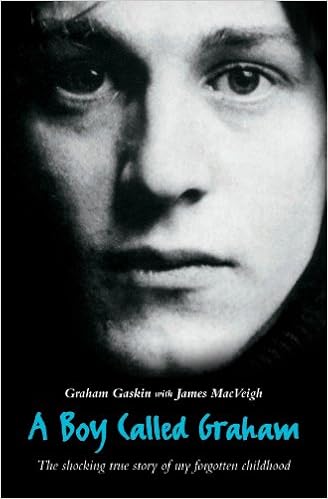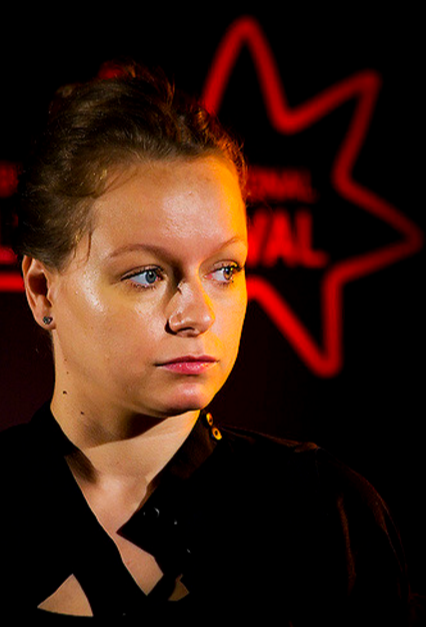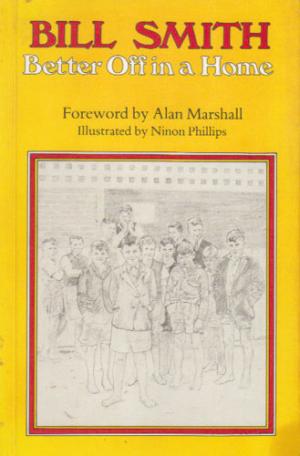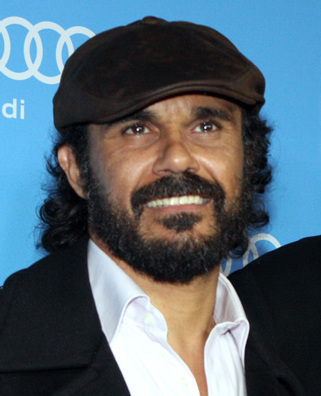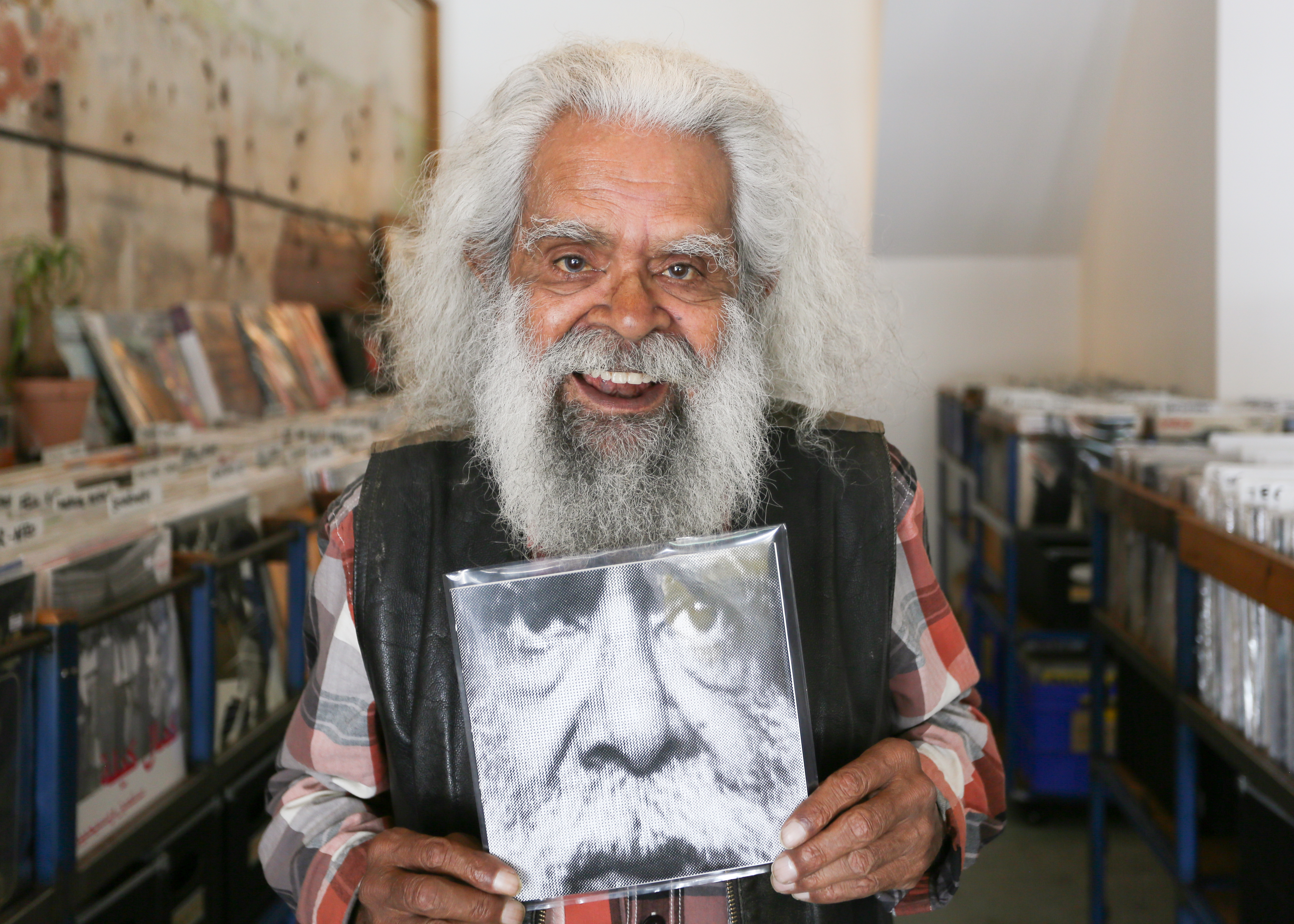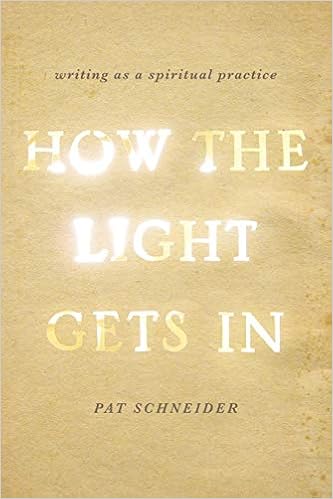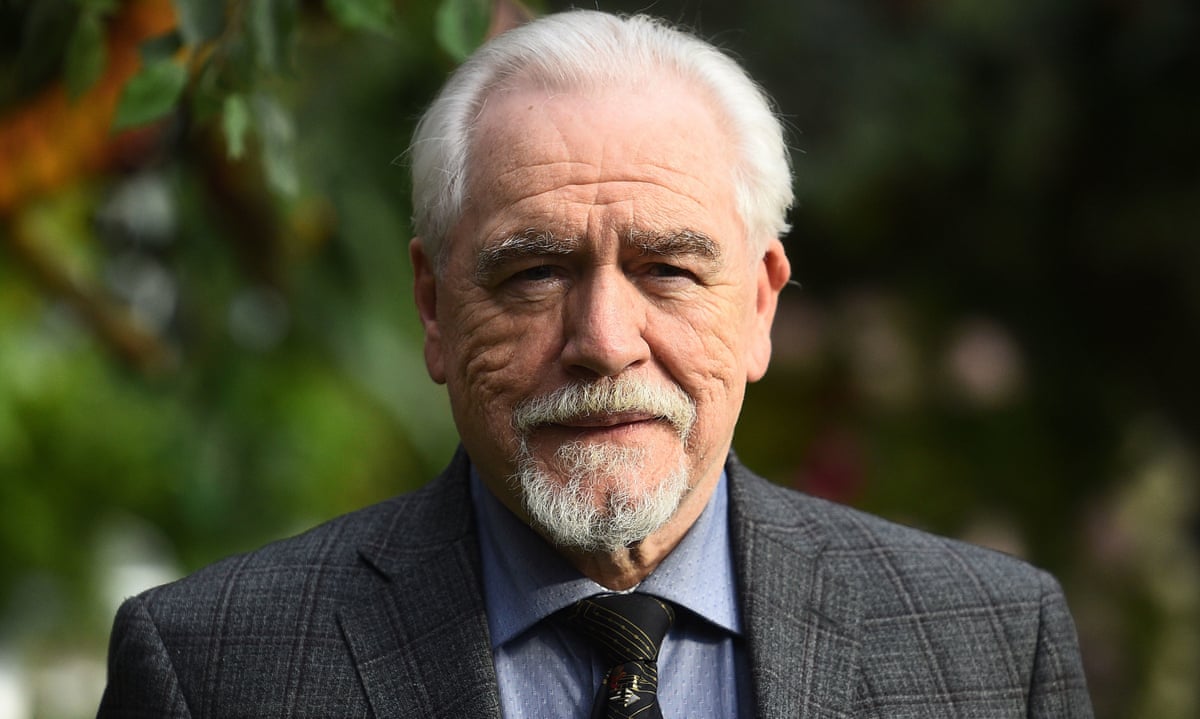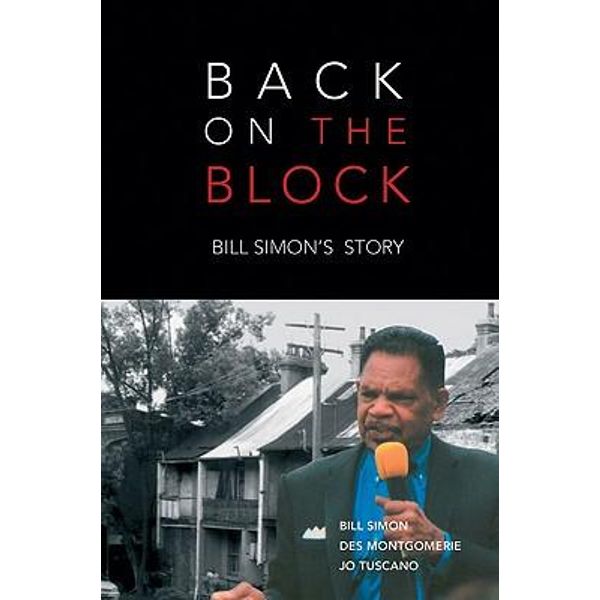Search Results
5233 items found for ""
- A Boy Called Graham
Autobiography/Memoir A Boy Called Graham Graham Gaskin with James MacVeigh 2005 Graham Gaskin's story is the kind of story that will touch the reader deeply. It is a story of suffering, neglect and abuse on many levels. When Graham was only nine months old, his mother committed suicide by throwing herself from the Wallasey ferry. This formative loss triggered the start of a lifetime of pain for Graham, both boy and man. For most of his life he was passed from children's home, to foster family, to institution, often being mistreated by those in authority. As he came of age, Graham had nowhere to turn but to a life on the streets, eventually living by his wits around the world. This is the controversial story of a forgotten child who, through no fault of his own, was left to fight his own battles. External Website
- Louis Armstrong’s “Karnofsky Document”: The Reaffirmation of Social Death and the Afterlife of Emotional Labor
Academic Articles Louis Armstrong’s “Karnofsky Document”: The Reaffirmation of Social Death and the Afterlife of Emotional Labor Dalton Jones 2015 This essay examines a controversial memoir Louis Armstrong wrote on his deathbed in New York’s Beth Israel Hospital. I argue that critics have made the mistake of treating each of the narrative’s elements as discrete units. In doing so they have protected the musician’s legacy by detouring around many of the challenges the document poses to some deeply cherished ideas about Armstrong’s life and the significance of his art. External Website
- I Beat the Odds: From Homelessness, to The Blind Side, and Beyond
Autobiography/Memoir I Beat the Odds: From Homelessness, to The Blind Side, and Beyond Michael Oher 2012 The football star made famous in the hit film (and book) The Blind Side reflects on how far he has come from the circumstances of his youth. ooking back on how he went from being a homeless child in Memphis to playing in the NFL, Michael talks about the goals he had to break out of the cycle of poverty, addiction, and hopelessness that trapped his family. Eventually he grasped onto football as his ticket out and worked hard to make his dream into a reality. With his adoptive family, the Touhys, and other influential people in mind, he describes the absolute necessity of seeking out positive role models and good friends who share the same values to achieve one's dreams. External Website
- Noel Tovey
Actors Noel Tovey Aboriginal Australian actor, dancer, singer, director, choreographer and writer, Noel Tovey (b. 1934), was in a children’s home and foster care as a child. Noel was the 3rd of 5 children born into an impoverished family living in the inner-city suburb of Carlton, Melbourne. His mother, Winifred Ann Tovey, was Aboriginal and his father, Frederick Morton, was of African-Canadian-French-Creole heritage. When Noel was 6, their parents abandoned their children and the Welfare Authorities put them into the Royal Park Depot, and from there Noel was taken in by Arthur Challenger and his mother, who lived in Burren Junction, more than 600km north-west of Sydney. n 1954 Noel danced in Paint Your Wagon, which toured in Adelaide and Sydney. Later, Noel Tovey trained at the national Theatre Ballet School. Then in 1961, he was in London working as the principal dancer for the Sadler’s Wells Company. He also made his debut as a singer and choreographer in London, directing and choreographing numerous productions across Europe. While in London, Noel and his partner set up what became one of the top galleries in London, L’Odeon. Noel didn’t return to Australian until 1990. He set up a performing arts course and continued his work as a director. Little Black Bastard, Noel Tovel’s autobiography, was published in 2004 to critical acclaim. The one man play based on the book was also well received in Australia, at the Edinburgh Festival in 2010 and the London Origins Festival in 2011. Noel Tovey has served on the NSW Arts Council, the 2000 Olympic Arts Festival and the AIDS Trust of Australia, amongst others. He set up the Novel Tovey Scholarship Fund to assist those from disadvantaged backgrounds to attend the Flying Fruit Fly Circus, a leading youth arts company. External Website
- I Know Why the Caged Bird Sings
Autobiography/Memoir I Know Why the Caged Bird Sings Maya Angelou 1993 This is Maya Angelou's autobiography, I Know Why the Caged Bird Sings published 1969 by Random House. The book follows Marguerite's (called "My" or "Maya" by her brother) life from the age of three to seventeen and the struggles she faces – particularly with racism – in the Southern United States. Abandoned by their parents, Maya and her older brother Bailey are sent to live with their paternal grandmother (Momma) and disabled uncle (Uncle Willie) in Stamps, Arkansas. Maya and Bailey are haunted by their parents' abandonment throughout the book – they travel alone and are labeled like baggage. This is the first of her autobiographical books. Angelou structures her book so that it presents a series of lessons about how to resist racism and oppression. External Website
- A childhood on paper Managing access to child care files by post-care adults
Academic Articles A childhood on paper Managing access to child care files by post-care adults Jim Goddard 2008 A childhood on paper Managing access to child care files by post-care adults. Jim Goddard, Julia Feast & Derek Kirton: For people who have spent part or all of their childhoods in care, access to information about family history and events that have happened during their childhood can offer significant benefits. It can provide a chronological history, explain the reasons for coming into care and help to build a fuller sense of the enquirer’s current identity. While the principle of providing such information has long been recognised, those formerly in care have faced numerous challenges in gaining access to their records. If you can't get access to this article, email: careexpereinceandculture@gmail.com and we'll pass on your request to Jim Goddard, Chair of The Care Leavers' Association. External Website
- Samantha Morton
Actors Samantha Morton Samantha Jane Morton (born 13 May 1977) is an English actress and director. She was in residential and foster care as a child and was a member of the Central Junior Television Workshop in her native Nottingham, and later began her career in British television in 1991. She guest-starred in Soldier Soldier and Cracker and had a bigger role in the ITV series Band of Gold. Samantha Morton has received numerous accolades for her work, including a British Academy Television Award, a British Independent Film Award and a Golden Globe Award, as well as nominations for two Academy Awards, a Primetime Emmy Award, and a British Academy Film Award. She made the transition to film with lead roles in the dramas Emma (1996), Jane Eyre (1997). For her role in Longford, she won the Golden Globe Award for Best Supporting Actress. Morton made her directorial debut with the television film The Unloved (2009), which won the BAFTA Television Award for Best Single Drama. External Website
- Better Off in a Home
Autobiography/Memoir Better Off in a Home Bill Smith 1982 In this book, Bill Smith tells about his early life in Melbourne and then in Kildonan, a children's home also in Melbourne. Bill's father took him to the home when he was 6. External Website
- Aaron Pedersen
Actors Aaron Pedersen Aaron Pedersen (born 24 November 1970) is an Australian television and film actor of Arrernte and Arabana Australian Aboriginal descent. Aaron and his seven siblings were in and out of foster care in Alice Springs in the Northern Territory as children. Aaron left Alice Springs for Melbourne as a young man after he was accepted to intern at the Australian Broadcasting Commission (ABC). Pedersen’s acting career began when he starred in Heartland (1994). The following year he co-hosted game show Gladiators Australia and performed the role of Vince Cellini in Wildside in 1997. Aaron Pedersen has played a number of characters in popular Australian television series, including Detective Senior Constable Michael Reilly in Water Rats (1996-2001), Detective Senior Constable Duncan Freeman in City Homicide (2007-2012), Cam Delray in the Jack Irish series (2016-2021), and Detective Jay Swan in Mystery Road (2018, 2020). Aaron is the primary carer for his younger brother, Vincent, who has cerebral palsy. External Website
- Jack Charles
Actors Jack Charles Jack Charles (1943-2022) was an Australian actor, musician, potter, and Aboriginal elder. A member of the Stolen Generation, Jack was removed from his mother as a baby, sexually abused in Box Hill, and rejected by his foster mother when he told her he had made contact with Aboriginal family members. As a consequence of his childhood suffering, Jack was a drug addict for decades, often financing his habit through petty theft. He's been imprisoned something like 22 times. His screen credits include the landmark Australian film The Chant of Jimmie Blacksmith (1978), Bedevil (1993), Blackfellas (1993), Tom White (2004) and Pan (2015), among others. External Website
- Cloudy Wishes
Autobiography/Memoir Cloudy Wishes Amanda Gargula 2011 Recipes for Survival: Stories of Hope and Healing by Survivors of the State ‘Care’ System in Australia is a collection of stories by those who have grown up in care in Australia during the 20th century and is therefore contribution to a growing body of literature on the experiences of the Forgotten Australians. External Website
- How the Light Gets In: Writing as Spiritual Practice
Autobiography/Memoir How the Light Gets In: Writing as Spiritual Practice Pat Schneider 2013 Schneider's book is distinct from the many others in the popular spirituality and creative writing genre by virtue of its approach, using one's lived experience--including the experience of writing and being in an orphanage as a child-as a springboard for expressing the often ineffable events that define everyday life. Her belief is that writing about one's own life leads to greater consciousness, satisfaction, and wisdom. External Website
- Jimmie Fails
Actors Jimmie Fails Jimmie Fails (born November 10, 1994) is an American actor. His first lead role in a feature film was the titular role in the semi-autobiographical film The Last Black Man in San Francisco. Fails was born and raised in San Francisco. He spent most of his childhood in foster care and public housing. Until he was three years old he had lived in a Victorian house that his grandfather, a Baptist preacher, had bought in the predominantly Black middle-class Fillmore district of San Francisco. After his grandfather died, the house was foreclosed on because his relatives could not afford the expense. External Website
- Academic Articles, T
Authors T ‘Yes I’ve got some historic convictions but do the public really need protecting from me?’ ➝ Back to Top
- Raising Government Children
Academic Books & Book Chapters Raising Government Children Catherine Rymph 2017 Raising Government Children: A History of Foster Care and the American State (2017) by Catherine Rymph describes the shift during the Progressive Era (late 1890s to late 1910s) from from families informally organising foster care and work placements for their children to the organisation of formal foster care services. As in other countries (like Australia) women were instrumental in this change and created the child welfare professional. Rymph argues that reformers did not see foresee how foster care would become the fallback measure rather than the state providing a basic minimum income and other programs that would assist birth families, such as housing and child care. External Website
- Brian Cox
Actors Brian Cox Brian Denis Cox (born 1 June 1946) is a Scottish actor who works in film, television and theatre. Brian's father died when Brian was eight and his mother was institutionalised. Brian was cared for by his older sisters until his mother came home. Brian has worked extensively with the Royal Shakespeare Company, where he gained recognition for his portrayal of King Lear. He currently stars as media magnate Logan Roy on HBO's Succession. Cox is also known for appearing in Super Troopers, The Bourne Identity, The Bourne Supremacy, X2, Braveheart, Rushmore, Rise of the Planet of the Apes, and Troy. He was the first actor to portray Hannibal Lecter on film, in 1986's Manhunter. An Olivier Award, Emmy Award and Golden Globe winner, Cox has also been nominated for a BAFTA and three Screen Actors Guild Awards. In 2006, Empire readers voted him the recipient of the Empire Icon Award. External Website
- Charles Dickens and the House of Fallen Women
Academic Books & Book Chapters Charles Dickens and the House of Fallen Women Jenny Hartley 2008 Jenny Hartley's 2008 book, Charles Dickens and the House of Fallen Women, tells the fascinating story of Charles Dickens setting up a refuge for girls and women where they were trained as domestic servants and then set out to the colonies. Urania Cottage was funded by philanthropist Angela Burdett-Coutts but Dickens was involved from the outset, organising furniture and detailing how the Cottage was to be run. The Cottage had room for 13 girls (some as young as 14) and young women and on entering Urania they had to agree to migrating after 12 months or so. Jenny Hartley estimates 100 girls emigrated during the 12 years Dickens was involved. Many then disappeared, but she's managed to trace the descendants of some. External Website
- Actors, N
Authors N Jack Nicholson ➝ Back to Top
- Dussa and the Maiden's Prayer
Autobiography/Memoir Dussa and the Maiden's Prayer Walter Jacobsen 1994 Walter Jacobsen reflects on the childhood he spent in the Parkville Children's Home, and in foster care in rural Victoria, South Australia External Website
- Back on the block: Bill Simon's story
Autobiography/Memoir Back on the block: Bill Simon's story Bill Montgomerie Simon et al. 2009 Stolen, beaten, deprived of his liberty and used as child labour, Bill Simon’s was not a normal childhood. He was told his mother didn’t want him, that he was ‘the scum of the earth’ and was locked up in the notorious Kinchela Boys Home for eight years. His experiences there would shape his life forever. Bill Simon got angry, something which poisoned his life for the next two decades. A life of self abuse and crime finally saw him imprisoned. But Bill Simon has turned his life around and in Back on the Block, he hopes to help others to do the same. External Website

